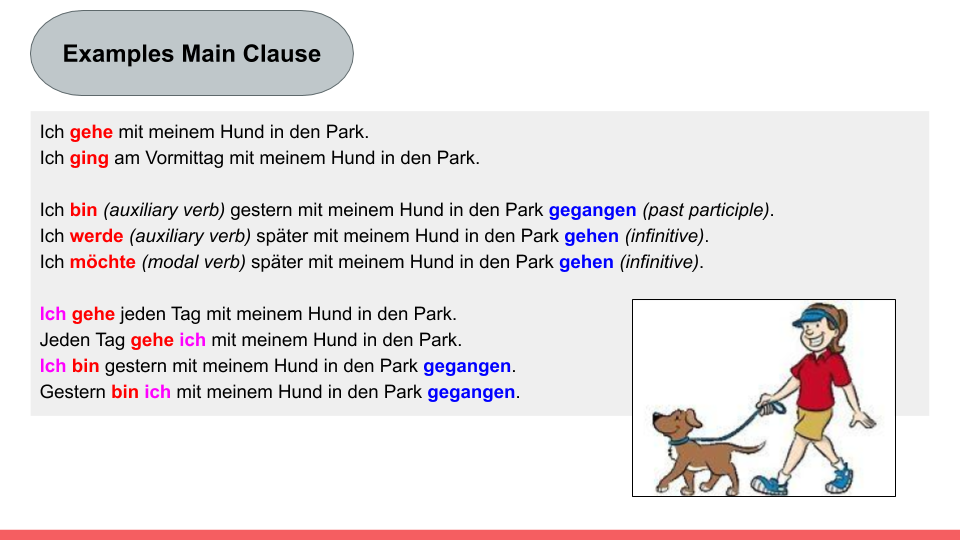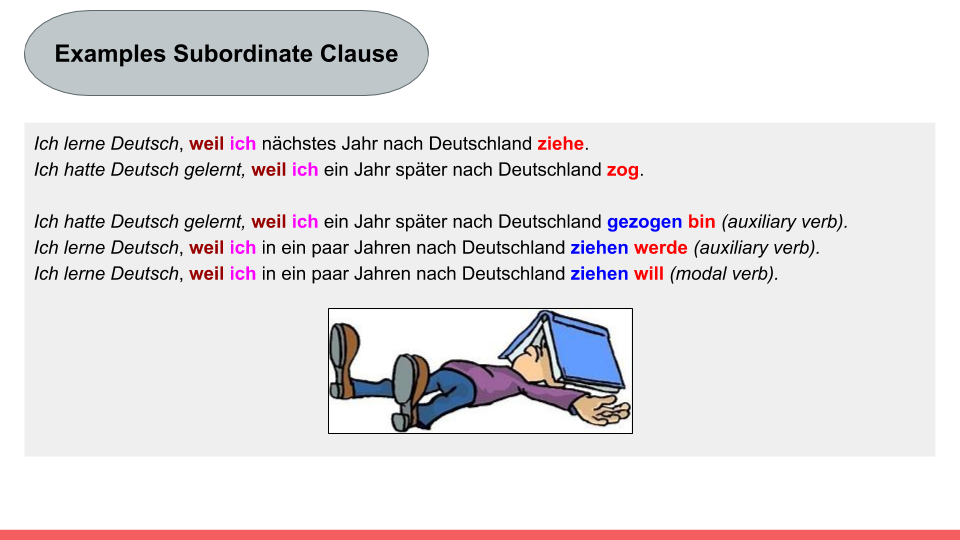"America cultivates best what Germany brought forth."
(Benjamin Franklin)
(Benjamin Franklin)
Private German Courses Online via Skype or Zoom
A German Course Online for Absolute Beginners
19.50 Euros per 60 minutes
If you want to study German but are a little hesitant because you believe you may not have what it takes to master a foreign language, this course is for you. It offers an easy step-by-step approach to learning a second language. Each lesson is supported by many photos and illustrations. Its purpose is to familiarize you with the study of a new language and to teach you enough basic German, so it will be easier for you to begin a conventional A1 course.
German Courses Online from German A1 to German C2
19.50 Euros per 60 minutes
If you have been thinking about taking a German course but you don't have the time or opportunity to attend a course at a language institute, I offer you similar courses from level A1 to C2. My courses contain all the subject matter you need if you want to study German and obtain a Goethe Zertifikat. However, each individual class can be specifically tailored to your learning needs and progress, and you can decide how many hours per week you want to take. This allows you to study and advance on your own terms, without the group pressure often experienced in courses with large numbers of students.
German Exam Preparation Courses Online
19.50 Euros per 60 minutes
If you need help preparing for an exam, for example at the Goethe Institut, I have specially designed exam preparation courses. These courses are intended to familiarize you with what the exam will be like and contain mostly training exercises. They require that you already have a good command of the certificate's language level you want to obtain.
German Grammar Lessons Online for All Levels
19,50 Euros per 60 minutes
Having trouble comprehending German grammar?
If you need help, I will be happy to tutor you in German grammar. I personally find grammar fascinating and enjoy teaching it.
The lessons will be individually prepared for you according to your grammar needs and will particularly focus on helping you to better understand the grammatical structure of German at the level you currently have.
If you need help, I will be happy to tutor you in German grammar. I personally find grammar fascinating and enjoy teaching it.
The lessons will be individually prepared for you according to your grammar needs and will particularly focus on helping you to better understand the grammatical structure of German at the level you currently have.
The Position of the Subject and Verb - The Three Most Important Rules
The subject as well as the predicate are the two most important grammatical features. Together, they form the backbone of every sentence and express the fundamental idea of the statement.
The predicate consists of either a single conjugated main verb (Präsens & Präteritum) or a combination of a conjugated auxiliary or modal verb with a non-conjugated main verb (Partizip II or Infinitiv).
The three most important rules in German grammar define where in a statement, you have to place the subject and the verb or verbs of the predicate:
The predicate consists of either a single conjugated main verb (Präsens & Präteritum) or a combination of a conjugated auxiliary or modal verb with a non-conjugated main verb (Partizip II or Infinitiv).
The three most important rules in German grammar define where in a statement, you have to place the subject and the verb or verbs of the predicate:
Rule No.1 defines where you have to place the conjugated verb.
Rule No.2 defines where you have to place the non-conjugated verb of the predicate, if there is one.
Rule No.3 defines where you have to place the subject.
Rule No.2 defines where you have to place the non-conjugated verb of the predicate, if there is one.
Rule No.3 defines where you have to place the subject.
The Three Rules for the Main Clause (Hauptsatz)
Rule No.1: The conjugated verb must always be the second element.
Rule No.2: The non-conjugated verb must always be the last element.
Rule No.3: The subject can only be the first or third element.
Rule No.2: The non-conjugated verb must always be the last element.
Rule No.3: The subject can only be the first or third element.
The Three Rules for the Subordinate Clause (Nebensatz)
Rule No.1: The conjugated verb must always be the last element.
Rule No.2: The non-conjugated verb must be placed before the conjugated verb.
Rule No.3: The subject is usually the second element and placed after the conjunction (dass, weil ...).
Rule No.2: The non-conjugated verb must be placed before the conjugated verb.
Rule No.3: The subject is usually the second element and placed after the conjunction (dass, weil ...).
But sometimes, it can be possible to place certain elements between the conjunction and the subject, for example:
- a dative pronoun: Der Schüler ist froh, weil ihm der Lehrer eine gute Note gegeben hat.
- an adverb of time: Sie hat gehört, dass heute der Elektriker kommt.
The Position of a Subordinate Clause
A subordinate clause of a sentence can also be placed before the main clause. In such a case, the subordinate clause becomes the first element of the full sentence. The conjugated verb of the main clause must therefore be placed right after the comma into second position, and then the subject into third position after the conjugated verb.
- Ich bleibe heute zuhause, weil es regnet.
- Weil es regnet, bleibe ich heute zuhause.



